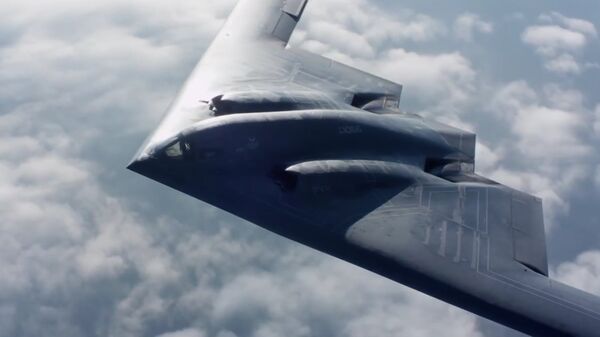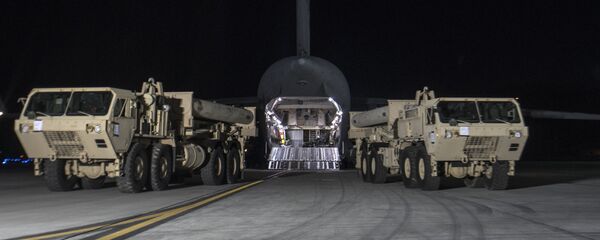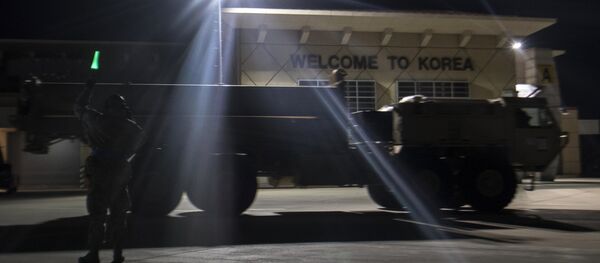South Korea’s Ministry of National Defense reported that the two allies agreed to institute "measures available in all aspects, including the regular deployment of US strategic assets."
These assets include the US B-52, B-2 and B-1B bombers; F-35 fighter jets; and aircraft carriers usually housed at American bases in South Korea, Japan or Guam.
The announcement came during a media briefing on the biannual Integrated Defense Dialogue (KIDD) meeting between the US and South Korea that took place in Washington, DC, on Thursday.
Assistant Secretary of Defense for Asian and Pacific Security Affairs David F. Helvey represented the US delegation at the defense meeting with his Korean counterpart Wee Seung-ho, deputy minister for policy.
Seoul and Washington also reiterated that the US’s recently deployed Terminal High Altitude Area Defense (THAAD) missile defense system was intended purely for defense purposes. China has complained that the THAAD’s strong radar could be used to spy on Beijing.
China demanded South Korea remove THAAD on Wednesday. THAAD’s presence "destroys the regional strategic balance and further prompts tensions on the Korean Peninsula," Chinese Foreign Ministry spokesman Geng Shuang said, UPI reported.
"Cancel the deployment of THAAD. Otherwise China will decisively take necessary measures," Geng warned.
When it was announced earlier this week that THAAD was close to being operational, China carried out a military drill using "new weapons" in order to "defend national security and regional stability."
Washington and Pyongyang have been engaged in a war of words in recent weeks, trading barbs as the North continues its ballistic missile and nuclear weapons tests and the US threatens military action in retaliation.
Tensions have calmed somewhat since the flashpoint of North Korea’s recent Day of the Sun celebration, when another nuclear test was feared. US Secretary of State Rex Tillerson said Friday that Washington was open to talks with North Korea about denuclearization, a tactic China has called for for some time.
When asked about the possibility of talks, Tillerson said, "Obviously, that would be the way we would like to solve this. But North Korea has to decide they're ready to talk to us about the right agenda," according to the BBC.
Wang Yi, China’s foreign minister, suggested that, "The use of force does not solve differences and will only lead to bigger disasters … Peaceful settlement of the nuclear issue on the Korean Peninsula through dialogue and negotiations represents the only right choice that is practical and viable."
There are about 285,000 American troops currently stationed in South Korea.






